 Anki
VS
Anki
VS
 Cadence
Cadence
Anki
Anki is a sophisticated flashcard application engineered to enhance memory retention and make learning more efficient. Utilizing intelligent algorithms, the program prioritizes material that users find challenging, scheduling reviews based on principles of spaced repetition to ensure long-term recall. This method minimizes time spent on already known information, optimizing study sessions for maximum effectiveness.The platform supports a wide range of content within flashcards, including audio clips, images, videos, and scientific markup (like LaTeX), catering to diverse learning needs across various subjects. Anki offers significant flexibility through customization options for flashcard layouts and review timings, alongside the ability to handle very large decks (over 100,000 cards) smoothly. Its open-source nature encourages community contributions, and synchronization across multiple devices is facilitated via the free AnkiWeb service.
Cadence
Cadence provides a streamlined approach to learning using digital flashcards. Users can create cards effortlessly with Markdown and LaTeX support, flipping them for comprehensive study. The platform emphasizes simplicity, removing complex settings and metrics often found in similar tools.It incorporates smart scheduling, utilizing spaced repetition algorithms behind the scenes to optimize learning sessions. This system determines the best time to review each card, allowing users to focus purely on absorbing information without managing complicated scheduling math. Progress tracking is kept straightforward, offering essential statistics to maintain motivation.
Pricing
Anki Pricing
Freemium
Anki offers Freemium pricing .
Cadence Pricing
Freemium
Cadence offers Freemium pricing .
Features
Anki
- Spaced Repetition System: Intelligently schedules card reviews based on recall difficulty to maximize retention.
- Media Support: Incorporate audio, images, videos, and scientific markup (LaTeX) into flashcards.
- Customization: Modify flashcard layouts and review timings.
- Synchronization: Sync decks and progress across multiple devices using the free AnkiWeb service.
- Large Deck Handling: Efficiently manages decks containing over 100,000 cards.
- Extensibility: Enhance functionality with community-developed add-ons.
- Cross-Platform Availability: Available on Windows, macOS, Linux, iOS (AnkiMobile), and Android (AnkiDroid).
Cadence
- Friendly Flashcards: Create cards using Markdown and LaTeX, with the ability to flip them for versatile learning.
- Simple Progress Tracking: Provides essential statistics to maintain motivation without overwhelming details.
- Smart Scheduling: Automatically handles spaced repetition scheduling to optimize review times based on user performance.
- Simplified Interface: Designed for ease of use with no complex settings or confusing options.
- Keyboard Shortcuts: Efficient card rating using keyboard commands.
- Data Export: Allows users to export their decks as CSV or JSON.
Use Cases
Anki Use Cases
- Learning a new language.
- Studying for medical and law exams.
- Memorizing geography facts.
- Mastering scientific concepts and formulas.
- Preparing for standardized tests.
- Improving long-term memory for any subject.
Cadence Use Cases
- Studying academic subjects.
- Learning new languages or vocabulary.
- Memorizing facts, formulas, or concepts.
- Preparing for exams or professional certifications.
- Personal knowledge management and retention.
Anki
Cadence
More Comparisons:
-
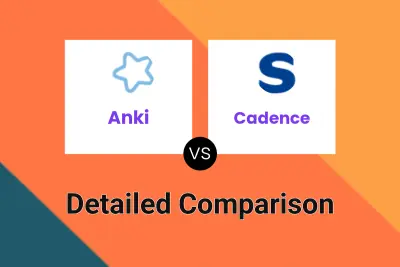
Anki vs Cadence Detailed comparison features, price
ComparisonView details → -
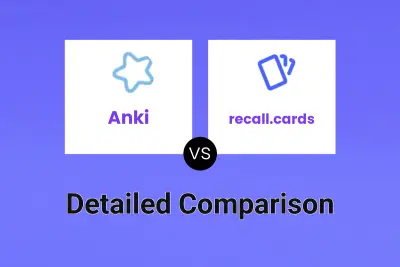
Anki vs recall.cards Detailed comparison features, price
ComparisonView details → -
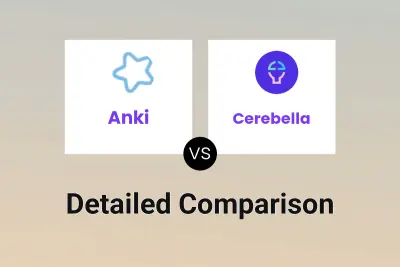
Anki vs Cerebella Detailed comparison features, price
ComparisonView details → -
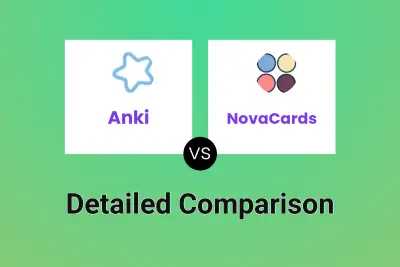
Anki vs NovaCards Detailed comparison features, price
ComparisonView details → -
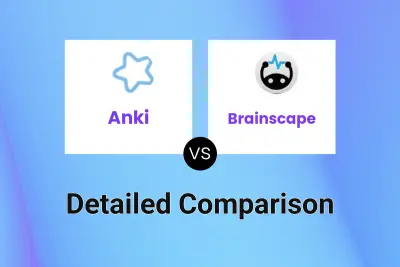
Anki vs Brainscape Detailed comparison features, price
ComparisonView details → -
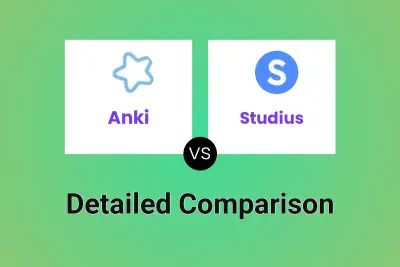
Anki vs Studius Detailed comparison features, price
ComparisonView details → -
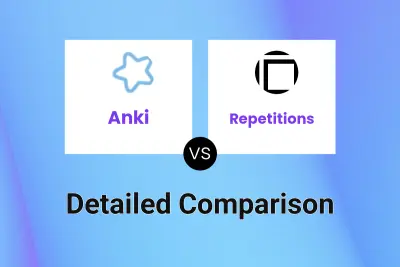
Anki vs Repetitions Detailed comparison features, price
ComparisonView details →
Didn't find tool you were looking for?